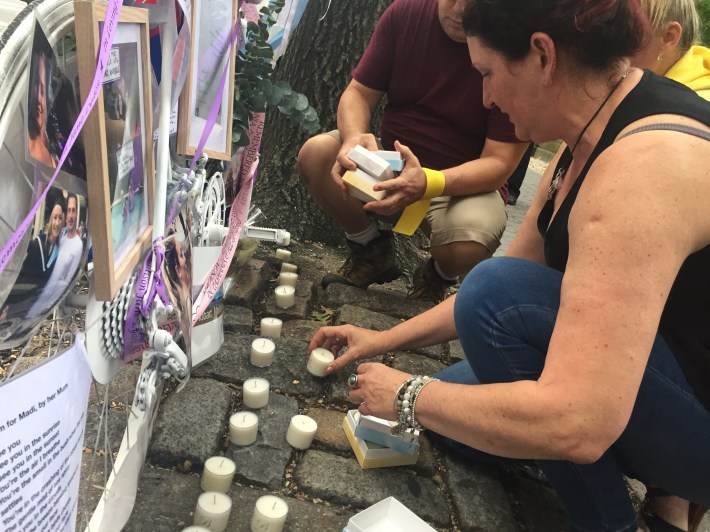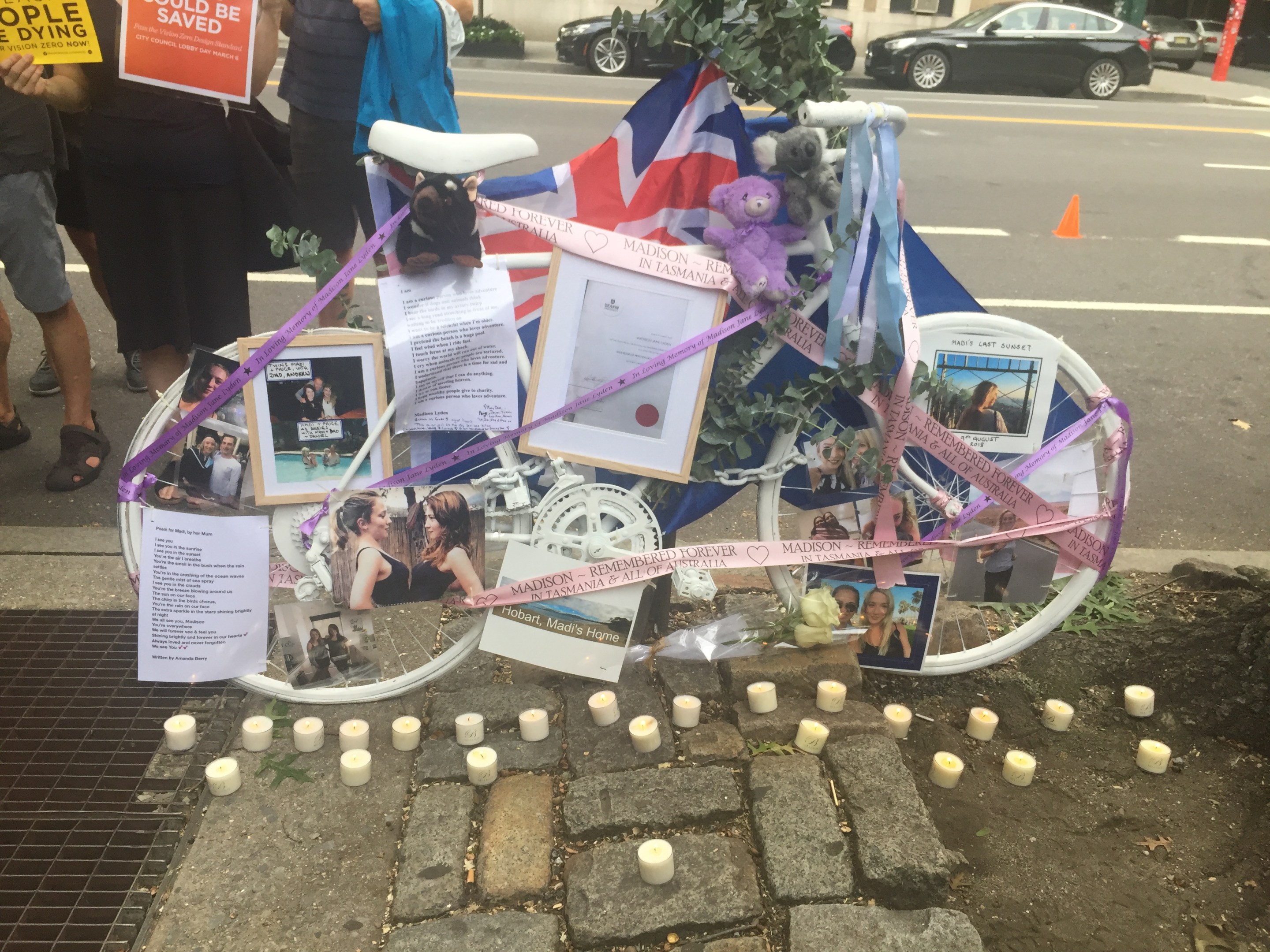There's now a white-painted bike on Central Park West where cyclist Madison Lyden was run over and killed because a taxi driver parked in a bike lane and forced her into traffic.
There's also a resolve that it never happen again.
More than two dozen street safety advocates gathered at the site of the Aug. 10 killing that shocked only those who weren't paying attention to the daily violence that plays out on New York's meanest streets — and the years of activism calling for a protected bike lane near the very spot where the Australian tourist died.
"I know the healing this will do, for a family that's seen such deep grief," said Lyden's friend Carolyn Bischof, as she pointed to items festooned on the so-called "ghost bike": Lyden's diploma, photos of her home and friends down under, a strand of Bischof's favorite horse's hair.
"Looking at this [bike] — this is the hippie in me — my heart chakra expands," she added. "This gives me hope that we'll get change."

Change has been in the Upper West Side air since Lyden's death under the wheels of a truck after cabbie Jose Peralta cut her off and then blocked her way. The commander of the 20th Precinct said he wanted to charge Peralta for his role in the death, but Manhattan District Attorney Cyrus Vance Jr. declined.
So it falls, once again, on the activists to demand change, which only seems to come after a high-profile death. Many deaths on Queens Boulevard led to a protected lane there. The 2017 death of Gelacio Reyes on 43rd Avenue in Sunnyside led to one there, too. And the killing of two small children on Ninth Street in Park Slope in March led to a pair of protected lanes that were just installed last month.
Since Lyden's death, Upper West Side Council Member Helen Rosenthal has called for a protected lane alongside one of the world's great urban parks, which is currently lined by car storage, speeding cars and buses. Community Board 7 has demanded a design this year.
Since 2012, over 430 people were injured on Central Park West, including 113 cyclists, according to city data compiled by CB7 member Richard Robbins.
But the issue of protecting cyclists on Central Park West will likely come down to what it often comes down to: a car-owning minority demanding virtually free access to the public curb to store their private vehicles.






